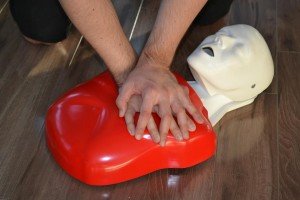Training providers in the US have become plentiful over the years. As people begin to become more aware of their responsibility to learn basic lifesaving skills such as CPR, more and more providers have been opening up all over the country. However, the training that a person should receive should be both high quality and affordable – San Francisco CPR has both. We have high quality training programs taught by amazing trainers, all available during the entire week.
How do I enroll in a program at San Francisco CPR?
On our quest to provide our trainees with not only the best but the most convenient training experience, we have three ways for them to enroll in our programs. The most popular way with students is through the internet. You can either send an e-mail or sign up using the application form on the San Francisco CPR website. E-mails or forms can be sent and accomplished at any time but will only be processed during business hours. Except a reply during those hours as well. The other two methods are over the telephone and in person; however, these methods can only be used during business hours.
Who needs to train in CPR?
Cardiopulmonary resuscitation training is an important skill that everyone should have. People don’t even have to train in advanced courses; basic courses are enough. Did you know that four out of five cardiac arrests happen at home? It means that for every cardiac arrest that EMTs respond too, the victim is somebody’s loved one. Sometimes, our own loved ones can suddenly get a heart attack. It then becomes everybody’s responsibility to learn even basic CPR skills.
What will I learn in a CPR class?

The basics are always covered in each of our training courses. Basics include three skills: compressions, rescue breaths, and defibrillation. In every rescue, the first two or all three skills are typically used. Bystanders who are trained rescuers are usually able to give compressions and rescue breaths before medical help arrives. During a worst case scenario where the bystander is not confident in giving CPR, he or she can simply perform hands-only CPR (chest compressions only).
Available classes
- Heartsaver CPR – 4 hours, Basic Life Support course for the general public
- Heartsaver CPR C – 4.5 hours, Basic Life Support course for HCPs (healthcare providers)
- Basic Life Support for HCPs – 4.5 hours
- Advanced Cardiac Life Support (ACLS) – 16 hours, Advanced Life Support course for HCPs
- Pediatric Advanced Life Support (PALS) – 14 hours, Advanced Life Support course for HCPs
Re-certification
- Basic Life Support for HCPs re-certification – 4 hours
- Advanced Cardiac Life Support re-certification – 5 to 6 hours
- Pediatric Advanced Life Support re-certification – 6 hours and 20 minutes / 8 hours and 20 minutes
Certification
Certificates expire after two years. However, they can be renewed (before they expire) through a re-certification class. Remember to apply for renewal before your certificate expires, or else you will have to take the training program again.
